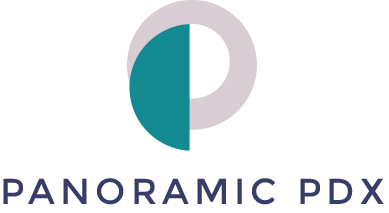What are the main benefits of working with a career counselor versus a career coach?
You've taken an enormous step and have decided to enlist a professional to help with your career goals. The next step is sifting through the many providers offering career counseling and coaching services. You're investing time and money, so researching options upfront can help you find a provider best suited to your needs.
If you need clarification about the key differences between career counselors, career coaches, and career consultants, read on to learn more and make an informed decision!
EDUCATION
A master's degree in career counseling, career development, or rehabilitation counseling prepares the career counselor for their role of helping people with career-related issues. Master's level counseling programs have national accreditation and provide degree recipients with a depth of understanding into the science of career development and important aspects of the human condition and human development. The curriculum also offers specialized knowledge about labor market trends, psychometric testing and assessments, cultural diversity, employment and salary statistics, and more. In addition, career counselors must meet continuing education requirements so they're always knowledgeable on current practices and employment trends.
There is currently no minimum educational requirement for coaches and consultants.
CREDENTIALING
At a minimum, counselors graduate with a master's degree, receive months to years of clinical supervision, pass state and national board and licensing exams, and meet demanding continuing education requirements.
At this time, there is no regulated or defined credentialing process that coaches and consultants must undergo either at the state or national level.
BOARD OVERSIGHT
State and national licensing and credentialing boards monitor career counselors who must abide by the boards' codes of ethics. If you believe a counselor's conduct is unethical, there is infrastructure in place for a grievance and investigation process in case you need to file a complaint.
Since anyone can become a career coach or consultant, the profession is currently unregulated, with little oversight and few consumer protections.
A MORE HOLISTIC APPROACH
Some career counselors offer a blend of psychotherapy and career counseling. Work stress and adverse work experiences like harassment, a hostile work environment, or being laid off could lead to depression, anxiety, or burnout. A career counselor could be a good option if you have mental health symptoms or a diagnosed condition and want to focus on career topics.
Vocational rehabilitation counselors—another career counseling specialty—provide career services to people with disabilities. In addition to vocational topics, they have an in-depth understanding of medical conditions, functional limitations (also known as medical restrictions), psychological adjustment to illness or injury, disability laws, and workplace accommodations. Rehabilitation counselors could be a good option if you have had to take a leave of absence or reduce work activity due to an illness or injury.
These scenarios fall outside of the scope of what a career coach or consultant should offer.
DO YOUR RESEARCH
It boils down to this. Career counselors and career coaches have the same goal in mind—they want to help you achieve your career goals.
Depending on your needs, a career counselor or career coach can both be good options. Many career coaches have long careers in a specific field or have worked in talent acquisition roles. They can be insightful and particularly effective if they have niche experience recruiting for your industry. Some coaches may obtain certification through coaching programs; you should vet these programs too.
The National Career Development Association has differentiating levels of career credentials for professionals. You can search their registry for qualified career service providers. You can locate Rehabilitation Counseling professionals on the Commission for Rehabilitation Counselor Certification registry.
SCHEDULE AN INTRODUCTION SESSION
Before you meet, be sure to schedule an information session and ask questions of any provider. Look for personal fit, and consider asking the following:
What qualifications do they have?
What types of clients do they work with?
Do they have experience helping clients in your profession?
Have they supported clients dealing with your particular situation?
Do they have a culturally competent approach?
Are they trauma-informed?
How are sessions structured?
Whether you decide to work with a career counselor or coach, as with any person providing counseling or coaching services, do your research and vet your options thoroughly.
Contact me to get the conversation started.

